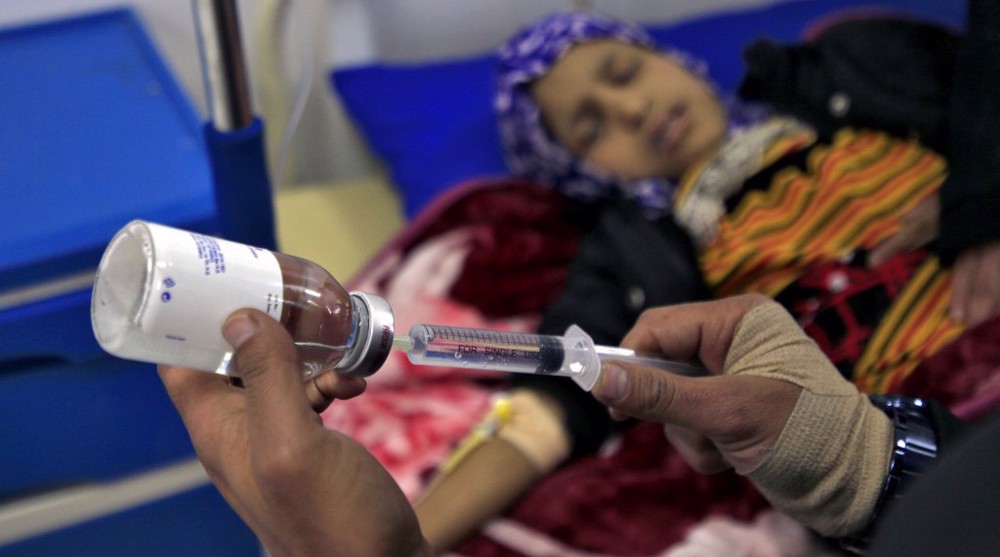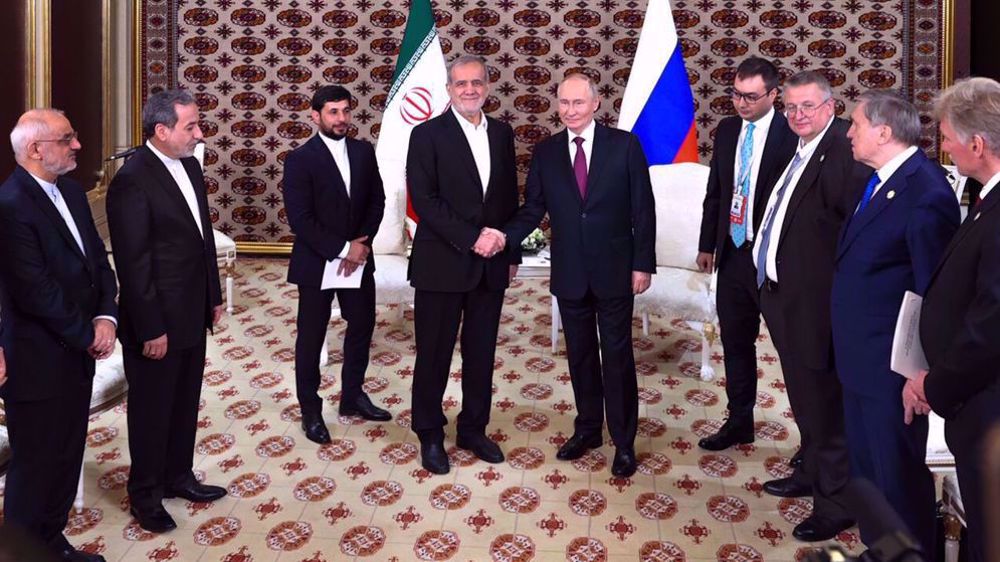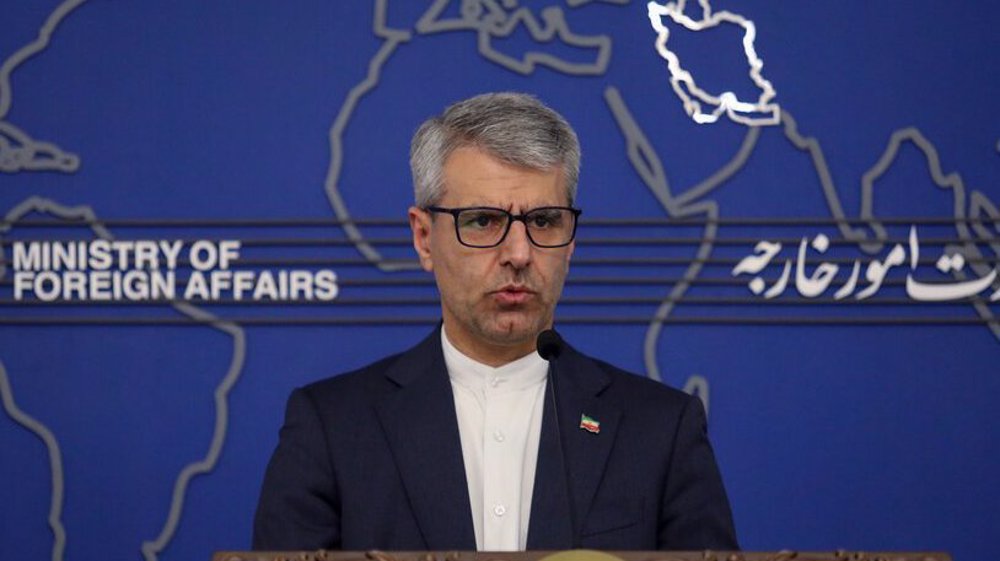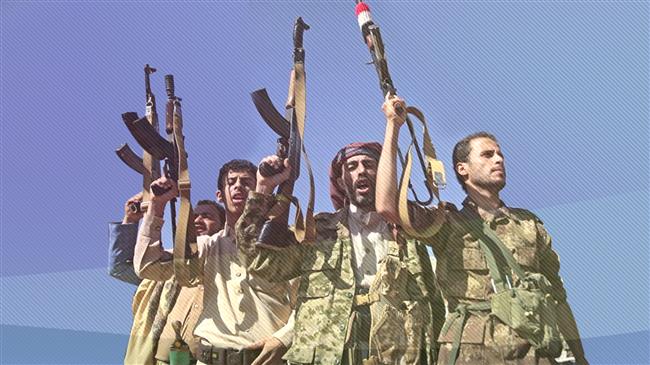UN envoy arrives in Tehran for consultations on Yemen crisis
The United Nations envoy for Yemen has arrived in Tehran for consultations about the ongoing crisis in the Arab world’s poorest country, which has endured almost six years of incessant military aggression by a Saudi-led coalition.
The Iranian Foreign Ministry confirmed that UN Special Envoy for Yemen Martin Griffiths’ arrival in the capital on Sunday.
During his stay, the UN official would join discussions and exchange ideas with Iranian officials about the means of ending the crisis in Yemen.

The Islamic Republic has devised a four-point plan aimed at restoration of peace to Yemen. Tehran submitted the proposal to the United Nations no later than a month after the Saudi-led coalition launched its attacks.
The plan proposes the establishment of a ceasefire, the transfer of humanitarian assistance to the war-hit nation, the launching of intra-Yemeni dialog, and the establishment of a broad-based government.
A Saudi-led coalition, enlisting many of the kingdom’s regional allies, began the war against Yemen in March 2015 with the aim of bringing the former pro-Riyadh government back to power.
The UN estimates that about 233,000 people have lost their lives, many of them having starved to death. The war, accompanied by an all-out siege of Yemen, has resulted in a devastating famine, creating the world’s worst humanitarian crisis.
The coalition, which has received arms, logistical and political backing from the United States, has found itself in a quagmire and failed to achieve any of its stated objectives. Yemen’s popular defensive Houthi Ansarullah movement has refused to give up its retaliatory operations and yield to the coalition’s demands.
It has targeted strategic sites in Saudi Arabia with missile and drone strikes.
In the most recent incident, the Saudi-led coalition alleged Sunday that it had downed a drone flown by Ansarullah towards southern Saudi Arabia.
Coalition spokesman Colonel Turki al-Malki claimed that the drone had been armed and sent to target “civilians and civilian objects,” Reuters reported.
The resistance group is yet to comment on the allegations.
Saudi Arabia, which has for years been raining down US- and UK-provided precision bombs on Yemen, has accused Iran of providing arms support for Ansarullah.
Tehran routinely refutes any such allegations, while denouncing Riyadh and Washington for treating the impoverished country as an assault course, where they freely dump state-of-the-art ammunition.
The new administration of US President Joe Biden has halted military support for the coalition and reversed a decision by his predecessor, Donald Trump that designated the Ansarullah movement as a “terrorist organization.”
Iran has said the newly declared US stance can be a "step towards correcting past mistakes" provided that it is not a mere political maneuver.
US Secretary of State Antony Blinken and his Saudi counterpart Faisal bin Farhan Al Saud discussed a number of issues, including human rights and the war in Yemen, over the phone on Friday. The discussion came on the same day the US was about to announce the reversal of the “terrorist designation” against Ansarullah, which Riyadh has been strictly against.
“The secretary outlined several key priorities of the new administration, including elevating human rights issues and ending the war in Yemen,” State Department spokesman Ned Price alleged in a statement.
Yemen lawmakers: US move step in right direction
Yemen’s Assembly of Representatives in the country’s capital Sana’a welcomed the Biden administration’s decision as a “step in the right direction.”
“We welcome the US’s decision to stop its arms support for Saudi Arabia and the United Arab Emirates,” the chamber said. The UAE is the only Riyadh ally that has remained in the coalition.
“This approach should be practically operationalized so the suffering of the Yemeni people ends,” they said, while calling on the UN to take immediate action towards ending the warfare and the accompanying siege.
US lawmakers demand answers from Biden on Israeli killing of Turkish-American activist
Araghchi: Iran never left negotiation table as its nuclear program ‘peaceful’
Jan. 14: ‘Axis of Resistance’ operations against Israeli occupation
VIDEO | UNRWA’s financial crisis deepens amid support cuts
South Korean President Yoon arrested over failed martial law bid
VIDEO | Press TV's news headlines
US budget deficit surges to record $711 billion
VIDEO | Yemeni army conducts three attacks against Israel within 12 hours















 This makes it easy to access the Press TV website
This makes it easy to access the Press TV website